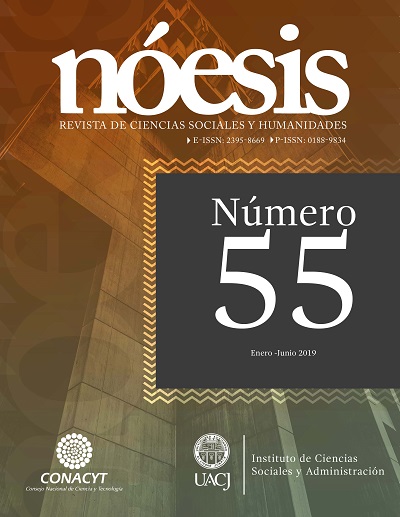Exclusivity and kinds of models in modulated disjunctive inferences
Main Article Content
Abstract
Downloads
Article Details

This work is licensed under a Creative Commons Attribution-NonCommercial-ShareAlike 4.0 International License.
References
Braine, Martin & David O’Brien. 1998. Mental logic. Mahwah: Lawrence Erlbaum Associates, Inc., Publishers.
Deaño, Alfredo. 1999. Introducción a la lógica formal. Madrid: Alianza Editorial.
Gentzen, Gerhard. 1934. Untersuchungen über das logische Schließen I. Mathematische Zeitschrift, 39(2): 176-210.
Gentzen, Gerhard. 1935. Untersuchungen über das logische Schließen II. Mathematische Zeitschrift, 39(3): 405-431. https://doi.org/10.1007/BF01201363
Gouveia, Edilaine, Antonio Roazzi, David O’Brien, Karina Moutinho, & Maria da Graça Bompastor Borges Dias. 2003. Raciocínio dedutivo e lógica mental. Estudos de Psicologia, 20(3): 135-145. https://doi.org/10.1590/S0103-166X2003000300010
Johnson-Laird, Philip. 2004. The history of the mental models. In Psychology and Reasoning: Theoretical and Historical Perspectives, edited by Ken Manktelow & Man Cheung Chung. New York: Psychology Press, 179-212.
Johnson-Laird, Philip. 2006. How we reason. Oxford: Oxford University Press.
Johnson-Laird, Philip. 2012. Inference with mental models. In The Oxford Handbook of Thinking and Reasoning, edited by Keith Holyoak & Robert Morrison. New York: Oxford University Press, 134-145.
Johnson-Laird, Philip N. & Ruth Byrne. 2002. Conditionals: A theory of meaning, pragmatics, and inference. Psychological Review, 109(4): 646-678. https://doi.org/10.1037/0033-295X.109.4.646
Johnson-Laird, Philip, Sangeet Khemlani, & Geoffrey Goodwin. 2015. Logic, probability, and human reasoning. Trends in Cognitive Sciences, 19(4): 201-214. https://doi.org/10.1016/j.tics.2015.02.006
Khemlani, Sangeet, Isabel Orenes, & Philip Johnson-Laird. 2014. The negation of conjunctions, conditionals, and disjunctions. Acta Psychologica, 151: 1-7. https://doi.org/10.1016/j.actpsy.2014.05.004
López-Astorga, Miguel. 2015. The disjunction introduction rule: Syntactic and semantic considerations. Pragmalingüística, 23: 141-149.
López-Astorga, Miguel. 2016. Against Philo’s interpretation of the conditional: The case of Aristotle’s thesis. Agora. Papeles de Filosofía, 35(2): 51-64. https://doi.org/10.15304/ag.35.2.2542
Oakhill, Jane & Alan Garnham. 1996. Mental models in cognitive science. Essays in honour of Phil Johnson-Laird. Hove: Psychology Press.
O’Brien, David P. 2014. Conditionals and disjunctions in mental-logic theory: A response to Liu and Chou (2012) and to López-Astorga (2013). Universum, 29(2): 221-235. https://doi.org/10.4067/S0718-23762014000200015
Orenes, Isabel & P. Johnson-Laird. 2012. Logic, models, and paradoxical inferences. Mind & Language, 27(4): 357-377. https://doi.org/10.1111/j.1468-0017.2012.01448.x

